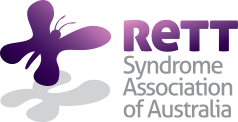Australia is only a very small part of the international Rett syndrome community so it follows that the RSAA support for research will always be focused on Australian researchers and that most research will be funded and undertaken in the USA and Europe.
The RSAA is always looking for current research publications and as soon as we are aware of them we will post them on our Facebook page and in our Latest News on our website.
However, as our resources are limited we believe the best thing we can do for the Australian Rett syndrome community is to provide links to very reliable and reputable Rett Syndrome research and the following links are intended for that purpose.
